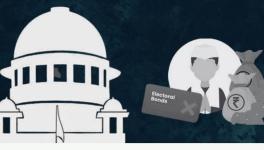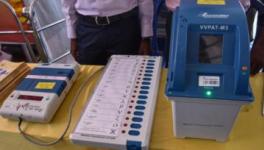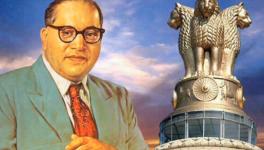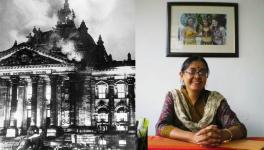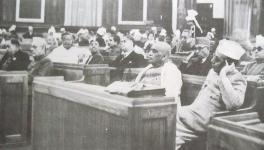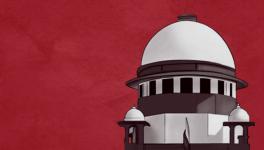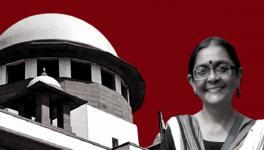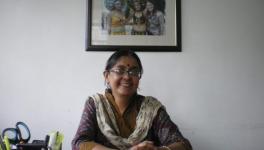Delhi: Major Victory for DU Teachers as Supreme Court Restores Pensions
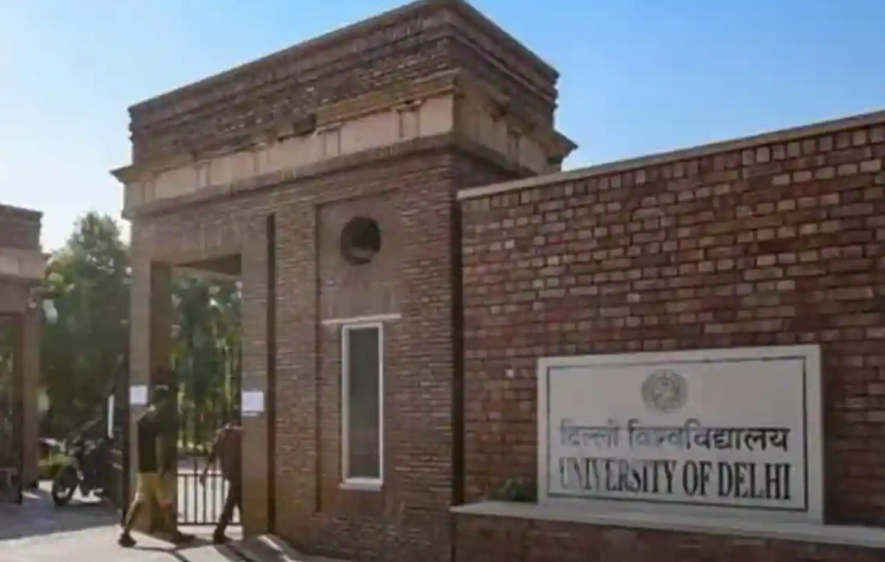
In a major victory for employees of the Delhi University (DU), the Supreme Court upheld the judgement of the Delhi High Court, giving pension relief to all categories of employees. The Court was listening to the university's plea challenging the verdict of the Delhi High Court which granted relief of pensions to employees who could have chosen the contributory pension fund (CPF) over the general provident fund (GPF).
The Central government introduced the GPF on January 1, 1986, in which employees were to get pensions after their retirement based on their last withdrawn salary and dearness allowance. Under the CPF scheme, the employees got a lump sum fund generally invested in savings schemes such as fixed deposits.
ORIGINS OF THE CASE
Through its memorandum from the Department of Personnel and Training, the Central government asked employees who joined their services before January 1, 1986, to exercise their choice between CPF and GPF, and the final choice was asked to be made by September 30, 1987.
If the employees were to fail to submit their choice by the cut-off date, they would be naturally considered to have opted for the GPF scheme. CPF generally remained the first choice then for employees, but the scenario changed after the fourth pay commission headed by PN Singhal recommended a considerable increase in employees' salaries. The employees who had chosen CPF now wanted to shift to GPF.
At DU, it was introduced on May 25, 1987. By the cut-off date, 2,611 employees had chosen to remain with the CPF scheme. Additionally, 626 employees also chose CPF during the two extensions given by the university. On its part, the university kept extending the cut-off date so that more employees could exercise their choice to move to GPF.
By January 31, 1999, 2,469 DU employees had gone with the GPF scheme. However, the situation was overturned when the University Grants Commission (UGC) told DU that choices exercised after the original cut-off date, September 30, 1987, were not valid.
The letter by the UGC read, "As per guidelines of Government of India, all CPF who were In service on January 1, 1986, and who are still in service on the date of issue of these orders (viz. May 1, 1987) have therefore automatically come over to the Pension scheme. However, the employees who have exercised an option to continue under the CPF scheme, if they so desired, have done so after due consideration by the specific date, i.e. September 30, 1987. As the option was given up to September 30, 1987, and it was clearly stated in the order that if no option is received by the above date, the employees will be deemed to have come over to the Pension Scheme, and the option once exercised shall be final."
The UGC letter explained that the revised option given by the employees to switch to GPF from CPF was "absolutely incorrect and against the rule." It further noted that the benefit of retirement liabilities for employees who switched to the GPF scheme after the cut-off date "may be met by the university from their sources, and the same would only be treated as an unapproved expenditure while determining the maintenance grant of the university."
The letter was met with stiff resistance from the employees, and UGC was compelled to write to the Ministry of Human Resources Development to allow one more extension. However, the request was denied because it would cost more to give pensions at a later stage.
Enraged teachers approached the Delhi High Court, which divided them into three batches, those made who did not exercise their choice, but deductions from salaries were made under CPF, employees who chose CPF in the first two extensions but later wanted to shift to GPF and employees who chose CPF before the cut-off date but wanted to change to GPF.
After considering the pleas, the High Court concluded that DU continued to offer pension benefits to 2,469 employees who had moved from CPF to GPF during the first two extensions. Additionally, the employees of other Central government institutes, including IITs, were given similar extensions. Thus, other employees could not be discriminated against. The order was challenged before the Supreme Court.
WHAT DID THE SUPREME COURT SAY?
While hearing the challenge petition by the university, the Supreme Court said that the Central government must have been aware of the magnitude of funds required to provide pensions, and it could not deny the right to employees.
The bench of Justice Uday Udit Lalit and Justice Vineet Sharan observed, "When the scheme was framed and was sought to be implemented, the concerned authorities must have taken into account the entire magnitude such as, the number of employees and the likelihood of impact on the management of the fund, so that reasonable returns can be effected by way of pension upon the retirement of such persons. Going by the intent of the notification, those who were to opt for CPF were an exception, and the general rule was that everybody after January 1, 1986, would normally be covered by GPF…it can reasonably be said that when the notification, dated May 1, 1987, was issued, the authorities were conscious of the possibility that all the employees may 'come over' to GPF."
"With that possibility in mind, the fund was constituted, and the affairs were arranged. The shift of those 75 employees would not in any way affect the strength and the character of the fund if a direction that the entire contribution made by the authorities be returned with a reasonable rate of interest is issued. These 75 petitioners had approached the Court in the year 2010. At this length of time, it is not as if any floodgates are going to open, and there will be a drain on the resources of the State," the order further read.
TEACHERS HAIL THE JUDGEMENT
DU teachers hailed the judgment as a breather as they had to go through the traumatic pandemic without any funds.
Nandita Narayan, former Delhi University Teachers' Association President, told NewsClick that teachers had to fight a long legal battle to reclaim their pension rights.
"We saw so many teachers dying during the pandemic without any funds. Those who survived had to ask for money from children. This horrible situation became worse because DU officials were not keen on extending the right."
Narayan, also the President of the Democratic Teachers' Front, added, "While employees in Category 3 began to get pension after the division bench judgment of 2016, those in category 1 and 2 were forced to continue their legal battle against the appeal filed by DU in the Supreme Court. Relief for the 'options' category came from the Central Government as late as 2018 after a protracted battle by the DUTA. A great salute to the struggle of all the teachers in Category 1 and 2 who continued their battle against great odds and to those who sadly lost their lives waiting for justice. The DU administration should take immediate steps to implement the Supreme Court order and process all pending pension cases for teaching and non-teaching employees under categories 1 and 2. Immediate relief must be provided to all retired teachers and non-teaching colleagues."
Get the latest reports & analysis with people's perspective on Protests, movements & deep analytical videos, discussions of the current affairs in your Telegram app. Subscribe to NewsClick's Telegram channel & get Real-Time updates on stories, as they get published on our website.









